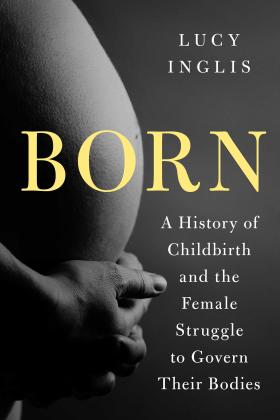
| Format | Hardcover |
| Publication Date | 10/07/25 |
| ISBN | 9781639365883 |
| Trim Size / Pages | 6 x 9 in / 336 |
*An Amazon Editors' Picks: Best History books of October*
A groundbreaking history of childbirth filled with medical, political, and social triumphs, Born is the story of how we give birth set against the female struggle to govern their ability to reproduce.
Born moves around over time and large geographical, social, and cultural distances, but returns continually to a series of themes: the experience of pregnancy, the act of childbirth, and latterly, the fight for reproductive autonomy.
Whatever their ultimate outcomes, pregnancy and the act of childbirth are at once an individual and communal event. No two births are the same, yet the history of childbirth informs us about so much more than this intimate moment in the lives of a woman and her offspring. The act of childbirth informs us as unique individuals, yet at the same moment makes us part of something much greater than ourselves.
This book is the sum of many stories that combine war, art, science, and politics with the fundamental act of human existence. It is not a book about parenting or motherhood beyond the moment of delivery and the short time afterward. Instead, this is a story of the evolving role pregnancy and childbirth have played in societies through history, of the mysticism, the practicalities, and the power struggles that have shaped nations, yet also, individual identities.
Our narrative starts out in prehistory and ends now, with the reversal of Roe v. Wade, taking in mother-and-child bone fragments of the Ice Age, the cries from the medieval birthing chair, and the calls to rally of our modern age. This is how we are Born.
Lucy Inglis is the creator of the award-winning Georgian London blog and her book of the same name was shortlisted for the History Today Longman Prize. She is also the author of two novels for young adults, including City of Halves, which was longlisted for the Carnegie Medal and the Branford Boase award. She lives in London.
Buy it now in print: Amazon Barnes & Noble IndieBound
Buy it now in ebook: Amazon Barnes & Noble Apple Kobo
"[An] eloquent account from historian Inglis (Milk of Paradise). Childbirth, she argues, has always been fraught with danger, underscored by hope, and communal, with 'every successful birth...a small victory for humanity.' With birth stories from the author’s own family gracefully woven in, the result is a nuanced and tender look at an intimate yet universal human experience." Publishers Weekly
"Inglis treats childbirth with the academic rigour and insightful compassion it deserves." Leah Hazard, author of WOMB
"A fascinating exploration of a long overlooked area of history. Shaped by meticulous research, Inglis writes with clarity, pace and a sharp eye for surprising details. She takes the reader on a tumultuous rollercoaster through time, and achieves that most difficult of things: bringing the strange lives of our ancestors vividly to life." Alice Loxton, author of Eighteen and Uproar!
"Moving from prehistory to the present, Lucy Inglis draws long overdue attention to the cultural history of childbirth. Born is a compelling read, considering subjects as diverse as caesareans, eugenics and religious theorising on birth, while taking readers on a journey through this most important of life events. Impeccably researched, Born is essential reading for anyone interested in the human condition." Dr. Elizabeth Norton, author of The Lives of Tudor Women
"Deeply researched, smart, poignant, and witty. By placing birth—rather than violence, language, or even taxes—as humanity's constant, Inglis offers a compelling new view of both history and the present." Karen Bloom Gevirtz, author of The Apothecary's Wife
Praise for Lucy Inglis’s Milk of Paradise:
"This sweeping history explores our millennia-long relationship with Papaver somniferum, the opium poppy. Deftly tracking opium’s path along global trade routes, Inglis illuminates various cultures and industries that have sprung up around it, from the Chinese opium den to the contemporary pharmaceutical manufacture of opioids." The New Yorker
"As Lucy Inglis recounts in her sweeping new history of opium, the tension between the substance’s medicinal virtue and its dangers is ancient. [She] untangles these contradictions with gusto. A deeply researched and captivating book." The Economist
"A model of lucidity. This timely account will interest advocates and concerned citizens. Inglis’s skillful command of style will please them all." Library Journal (starred)